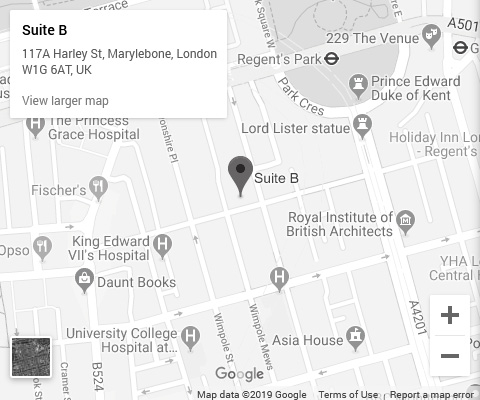
Knowing when to consider fertility testing can feel confusing, especially if you’re trying to conceive and not seeing results as quickly as expected. In the UK, many individuals and couples hesitate to seek help early, often unsure about what’s normal and when to take the next step. Fertility testing provides clarity, identifies potential issues, and helps you plan your next moves with confidence. Whether you’ve been trying for a while, are experiencing irregular cycles, or simply want reassurance about your reproductive health, understanding the right time for fertility testing can make the journey easier and more informed.
Understanding Fertility Testing
So, what exactly does fertility testing involve? Simply put, these tests evaluate various aspects of your reproductive system to determine how well they’re functioning. For women, this might include checking hormone levels, examining ovarian reserve (the number of eggs left), and assessing structural details like the condition of the fallopian tubes and uterus. Men typically undergo semen analysis to measure sperm count, motility (movement), and morphology (shape).
Common tests include Anti-Müllerian Hormone (AMH) testing - which gives clues about egg supply - and Follicle-Stimulating Hormone (FSH) tests, which assess ovarian function. Ultrasounds provide visual information about reproductive organs, while hormone panels paint a broader picture of overall hormonal balance. These tools work together to create a comprehensive snapshot of fertility potential.
Signs You Should Consider Fertility Testing
If you’ve been actively trying to conceive without success, it’s worth considering fertility testing sooner rather than later. Generally, if you’re under 35 and have been trying for over a year - or over six months if you’re older than 35 - it’s advisable to seek help. Other red flags include irregular or absent periods, as these could indicate underlying conditions such as polycystic ovary syndrome (PCOS) or thyroid imbalances. Similarly, men experiencing symptoms like low libido or swelling in the testicles may benefit from early testing.
A history of miscarriages, painful periods, or pelvic pain should also prompt action, as these could signal endometriosis or other reproductive disorders. Additionally, prior infections like chlamydia or gonorrhoea can impact fertility by causing scarring or blockages. If any of these signs resonate with you, it’s time to consider getting checked.
Book Your Fertility Assessment Now
Worried about delays or irregularities? Schedule your fertility test with our expert team and get clear guidance on your next steps.
Age and Fertility: Why Timing Matters
Let’s talk about age - a factor we all know but often try to ignore. Women are born with a finite number of eggs, and their quality naturally declines with time. By the mid-30s, this decline accelerates, making conception more challenging. While men continuously produce sperm throughout their lives, sperm quality also diminishes with age, particularly after 40. This doesn’t mean everyone needs to rush into parenthood, but it highlights why early intervention can be crucial.
For instance, if you’re in your late 30s or early 40s and planning to start a family, undergoing fertility testing now can give you peace of mind or guide you toward appropriate treatments. Even younger individuals with known risk factors - like a family history of premature menopause or previous surgeries affecting reproductive organs - shouldn’t wait until they encounter problems.
Lifestyle Factors That May Indicate Testing
Your lifestyle plays a significant role in fertility too. Chronic stress, smoking, excessive alcohol consumption, and recreational drug use can all impair reproductive health. Being overweight or underweight disrupts hormone regulation, potentially leading to ovulation issues in women and reduced sperm production in men. Environmental toxins, such as exposure to pesticides or heavy metals, can further complicate matters.
If you recognise unhealthy habits or environmental risks in your daily routine, addressing them proactively through lifestyle changes or medical guidance can improve your chances of conceiving. However, if adjustments don’t yield results within a reasonable timeframe, fertility testing can uncover deeper issues requiring professional intervention.
Fertility Testing Options Available in the UK
In the UK, you have two main routes for fertility testing: NHS and private clinics. The NHS provides free services, but waiting times can stretch several months depending on your location and urgency level. Private clinics, though costly, offer quicker appointments and often deliver results faster. Prices vary widely, ranging from £100 for basic tests to several hundred pounds for comprehensive packages.
During a clinic visit, expect thorough consultations, physical examinations, and bloodwork or imaging procedures. Staff will explain each step clearly, ensuring you feel comfortable and informed throughout the process. Choosing between NHS and private care depends on your budget, timeline, and preferences, so weigh the pros and cons carefully.
Preparing for Your Fertility Test
Preparation is key to accurate results. Start by tracking your menstrual cycle, noting its length, flow intensity, and associated symptoms. Keep a record of any medications, supplements, or recent illnesses, as these could influence outcomes. On the day of the appointment, avoid strenuous exercise, caffeine, or alcohol, unless instructed otherwise by your doctor.
Prepare thoughtful questions for your GP or specialist, such as “What specific tests do I need?” “How long will it take to get results?” “What options are available if my results aren’t ideal?” Arming yourself with knowledge ensures you leave the consultation feeling confident and prepared for whatever comes next.
What Your Test Results May Mean
Once you receive your results, here’s what to look out for. Low AMH levels might suggest diminished ovarian reserve, while elevated FSH indicates declining ovarian function. Abnormalities in sperm parameters could point to male infertility causes like varicoceles or genetic factors. Conversely, normal results don’t guarantee immediate pregnancy but reassure that biological barriers aren’t present.
If your results reveal concerns, discuss next steps with your healthcare provider. They might recommend lifestyle modifications, additional diagnostic tests, or referral to a fertility specialist. Remember, every journey is unique, and there’s always hope - even with less-than-perfect results.
When to Seek Specialist Help
At what point should you escalate your care? If initial tests reveal abnormalities or if you’ve been trying unsuccessfully for over a year (or six months past 35), consulting a fertility specialist or reproductive endocrinologist is wise. These experts offer advanced diagnostics like hysterosalpingography (to check blocked fallopian tubes) and intracytoplasmic sperm injection (ICSI) for severe male infertility cases.
Early intervention not only increases your chances of success but also reduces emotional strain. Specialists can tailor treatment plans based on your unique circumstances, whether that involves intrauterine insemination (IUI), in vitro fertilisation (IVF), or alternative therapies.
Ready for Fertility Testing?
Take control of your reproductive health today. Book your fertility testing appointment with our specialists for accurate, confidential results.
Conclusion
Navigating fertility can feel overwhelming, especially amidst the demands of modern life. But recognising the right time for fertility testing empowers you to take charge of your reproductive health. Whether prompted by age, lifestyle choices, or persistent symptoms, timely testing provides clarity and direction. Don’t hesitate to reach out to professionals who can guide you through this process with empathy and expertise. After all, building a family is one of life’s most profound journeys - and arming yourself with knowledge ensures you’re ready for whatever lies ahead.





-in-the-UK.jpg)

